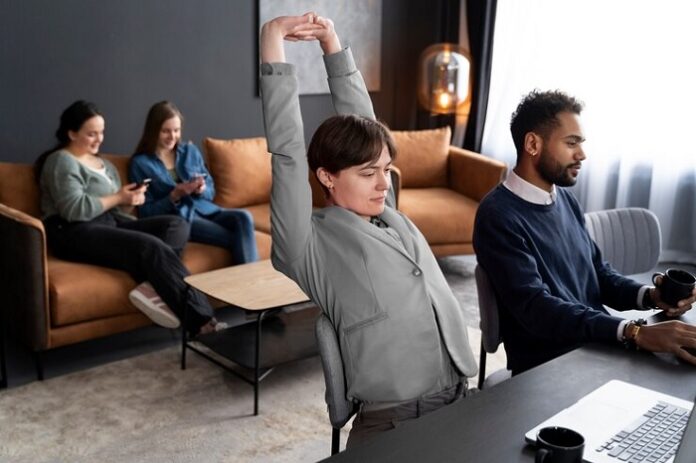
Have you ever felt overwhelmed by the clutter surrounding you, leaving you in a state of constant stress and mental fatigue? If so, it’s time to embrace the power of decluttering and unlock the transformative benefits it can bring to your life.
Decluttering is more than just a physical act of organizing; it’s a psychological journey that can profoundly impact your well-being. In a world filled with constant distractions and information overload, creating an organized and clutter-free environment can be a game-changer.
Overview
In our fast-paced lives, it’s easy to accumulate clutter, whether it’s physical possessions, digital files, or even mental clutter. This overwhelming presence of disorganization can take a toll on our mental health, productivity, and overall sense of control. Recognizing the importance of decluttering is the first step towards reclaiming our spaces and our minds.
The psychology behind organizing goes beyond mere aesthetics; it delves into the intricate relationship between our physical surroundings and our mental state. By understanding the psychological effects of clutter and the benefits of organization, we can embark on a transformative journey towards a more intentional and fulfilling life.
Understanding the Psychology of Clutter
Clutter is more than just a physical manifestation of disorganization; it can have profound psychological consequences. Studies have shown that cluttered environments can contribute to increased stress levels, anxiety, and even depression. The constant visual stimuli and disarray can overwhelm our cognitive abilities, making it challenging to focus and think clearly.
Furthermore, the reasons behind clutter accumulation can vary from person to person, ranging from emotional attachment to objects, fear of letting go, or simply a lack of organizational skills. Addressing these underlying causes is crucial in breaking the cycle of clutter and embracing a more organized lifestyle.
The connection between clutter and stress levels is undeniable. When our surroundings are disorganized, our minds are constantly bombarded with visual distractions, making it difficult to concentrate and find a sense of calm. This can lead to heightened levels of cortisol, the body’s primary stress hormone, which can have detrimental effects on our overall well-being.
The Benefits of Decluttering
Decluttering is not just about creating a visually appealing space; it’s about cultivating a positive mindset and unlocking a myriad of benefits that can transform your life. Here are some of the most notable advantages of embracing an organized and clutter-free environment:
- Improved Mental Clarity and Focus: By removing the visual distractions and overwhelming stimuli of clutter, you can experience a heightened sense of mental clarity. This newfound focus can enhance your productivity, creativity, and overall cognitive abilities.
- Reduced Anxiety and Stress: A decluttered space can serve as a sanctuary, offering a sense of calm and tranquility. With less visual noise, your mind can find respite from the constant barrage of stimuli, leading to reduced anxiety and lower stress levels.
- Enhanced Productivity and Efficiency: When your environment is organized, you can streamline your daily tasks and eliminate the time-consuming process of searching for misplaced items. This increased efficiency can translate into a more productive and fulfilling work experience.
- Increased Sense of Control and Well-being: Clutter can often create a feeling of being overwhelmed and lacking control over your surroundings. By decluttering and organizing your spaces, you regain a sense of control, which can positively impact your overall well-being and self-confidence.
“A cluttered space leads to a cluttered mind, decluttering is the first step towards mental peace.”
Implementing Organizational Strategies
Decluttering and organizing your life may seem like a daunting task, but with the right strategies and mindset, it can become a transformative journey. The key is to approach the process with mindfulness and a systematic approach.
When it comes to decluttering different areas of your life, such as your home, workspace, or digital space, it’s essential to develop a system that works for you. This could involve categorizing items, creating designated storage spaces, or implementing the “one-in, one-out” rule to prevent future clutter accumulation.
Moreover, embracing mindfulness during the decluttering process can be incredibly powerful. By being present and intentional with each item you encounter, you can make more conscious decisions about what to keep or let go. This mindful approach can also help you cultivate a deeper appreciation for the possessions that truly bring value and joy to your life.
Case Studies and Success Stories
The transformative power of decluttering is not just theoretical; it has been witnessed and experienced by countless individuals worldwide. Here are a few inspiring case studies and success stories that highlight the profound impact of embracing an organized lifestyle:
- Sarah’s Journey to a Clutter-Free Home: Sarah, a busy working mother, struggled with a cluttered home for years. After a particularly stressful period, she decided to take control and declutter her living space. Through a systematic approach and a commitment to mindfulness, Sarah transformed her home into a haven of tranquility. Her newfound organizational skills not only reduced her stress levels but also improved her overall productivity and quality of life.
- Mark’s Digital Decluttering Transformation: As a tech professional, Mark found himself drowning in a sea of digital clutter, from countless emails to disorganized files and folders. After implementing a digital decluttering strategy, Mark experienced a newfound sense of clarity and focus. His productivity skyrocketed, and he was able to regain control over his digital workspace, ultimately leading to career advancement and a better work-life balance.
- Emma’s Path to Minimalism and Mental Peace: Emma had always been a collector of objects, accumulating possessions that eventually led to a cluttered and overwhelming living environment. After discovering the principles of minimalism, she embarked on a decluttering journey that not only transformed her physical space but also her mental state. Emma found newfound freedom, reduced anxiety, and a deeper appreciation for the essential aspects of her life.
These real-life examples serve as powerful reminders of the transformative potential of decluttering and the positive impact it can have on our overall well-being.
The Science Behind Decluttering
While the benefits of decluttering may seem anecdotal, scientific research has extensively explored the psychological and physiological effects of organized environments. Numerous studies have shown that decluttering can have a profound impact on brain function and cognitive abilities.
One study, conducted by researchers at the Princeton University Neuroscience Institute, found that clutter can impair our ability to focus and process information effectively. The study revealed that when individuals were exposed to an organized environment, their brain activity patterns were more focused and efficient compared to when they were in a cluttered space.
Another study, published in the journal “Personality and Social Psychology Bulletin,” explored the connection between physical order and mental well-being. The researchers found that individuals who described their living spaces as “restorative” and “organized” experienced higher levels of life satisfaction and overall happiness.
These scientific findings highlight the profound impact that decluttering and organization can have on our cognitive abilities, mental health, and overall quality of life.
Creating a Sustainable Organizational Lifestyle
While the initial process of decluttering can be transformative, maintaining a clutter-free environment requires a sustainable approach and the cultivation of healthy habits. Here are some tips to help you create a lasting organizational lifestyle:
- Establish Routines: Develop routines and habits that support ongoing organization. This could include setting aside dedicated time for decluttering, implementing a “one-touch” rule for handling items, or creating a system for regularly purging and donating items you no longer need.
- Embrace Minimalism: Adopting a minimalist mindset can help you prioritize the essential aspects of your life and let go of the unnecessary clutter. By focusing on quality over quantity, you can cultivate a more intentional and organized lifestyle.
- Schedule Regular Decluttering Sessions: Just as you schedule important meetings or appointments, set aside dedicated time for regular decluttering sessions. This can help you stay on top of clutter before it becomes overwhelming and ensure that your organized spaces remain clutter-free.
- Involve Others: If you live with family members or roommates, involve them in the decluttering process. Collaborative efforts and shared organizational systems can help create a harmonious and clutter-free living environment for everyone involved.
By embracing these strategies and making organization a priority, you can create a sustainable lifestyle that promotes mental clarity, productivity, and overall well-being.
Conclusion
In a world where clutter and disorganization can often feel overwhelming, embracing the power of decluttering and organization can be a game-changer. By understanding the psychology behind clutter and the profound benefits of an organized environment, you can embark on a transformative journey towards a happier, more focused, and more fulfilling life.
Decluttering is not just a superficial exercise; it’s a powerful tool that can unlock a wealth of psychological benefits. By creating an organized and clutter-free environment, you can cultivate a sense of mental clarity, reduce anxiety and stress, enhance productivity, and regain control over your surroundings. Embrace the psychology of organizing and let it guide you towards a more intentional, mindful, and fulfilling way of living.
Remember, decluttering is a journey, and it starts with a single step. Take that first step today, and witness the transformative power it can have on your life. Whether it’s tackling the clutter in your home, workspace, or digital realm, approach the process with mindfulness and a commitment to creating a sustainable organizational lifestyle.









